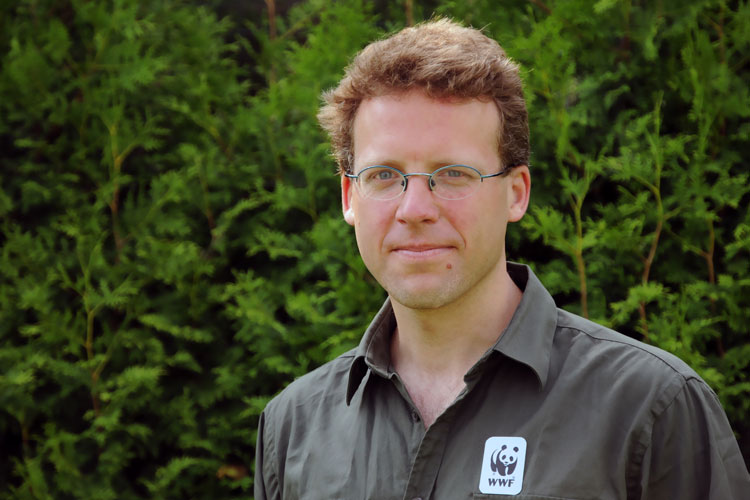Andreas
Distance Learning MBA
- Managing Director of the WWF Danube-Carpathian Programme
- From Winona, Minnesota, USA but currently lives in Vienna
- Liked the freedom of Distance Learning

Why did you decide to study at the University of Bradford?
I was interested in doing a Distance Learning MBA because it was the only option for me, given my career as well as family commitments - that and affordability were the first filters.
Beyond that, I was interested in Circular Economy for both personal and professional reasons. This was the factor that clinched my decision to do the MBA with Bradford.
The course has been a mixture of Circular Economy and what are probably standard MBA modules such as financial management, HR and business strategy.
I have found these useful for my work managing an organisation of 140 staff spread across 10 offices in 6 countries. They have provided me with a theoretical framework for my own reflection, as well as the chance to learn from and exchange with others.
What I have learnt about Circular Economy has also been useful, helping me to engage with our private as well as public sector partners – to better understand but also challenge them.
Tell us about your current role
I'm the Managing Director of the WWF Danube-Carpathian Programme – in other words, the regional director for Central and Southeastern Europe for WWF, the global conservation organisation.
In that role I'm responsible for ensuring that over 140 of my colleagues across 10 offices and 6 countries have the resources and support they need to do their work. Our region of Central and Southeastern Europe, including countries like Slovakia, Ukraine, Hungary, Romania and Bulgaria, has many of Europe’s greatest natural treasures and assets.
Our aim is to preserve this “Green Heart of Europe” for present and future generations. In doing so, we work closely with the EU, international organisations, national governments and authorities. We also work with the private sector, with companies like IKEA, Kingfisher and The Coca-Cola Company, on issues from sustainable forest management and wetland restoration.
How do you find Distance Learning?
Distance Learning has been perfect for me. I have really liked the freedom that it provides, allowing me to shoehorn lectures and classwork into my busy life. What comes short of course is the physical contact and interaction with professors and other students – there is some via online chats and sessions, but it can be hard not being physically in the same room together.
However, the lecturers have been open and responsive. My adviser in particular has been very engaged and extremely quick in providing feedback for my final project, which helped me a lot to keep that work moving forward as I was juggling my professional and family responsibilities. Career support and counselling has also been great.
.jpg)
What are your ambitions for the future?
I am committed to remaining with my current job for at least the next 3-4 years. I don’t at this time have any specific further objectives professionally.
I will however further develop my interest in circular economy and good governance, and promote this in my region of Central and Southeastern Europe – either in my current position or possibly elsewhere in future.
What advice would you give to future Distance Learning MBA students?
One thing is to be clear on expectations – distance learning was great for me, but might not be so for everyone. Some people say that more than half of an MBA is the people that you meet, and in that respect a DL degree might come up short.
You do have a chance to meet people from all over the world doing interesting things – but most of your interaction is online, which is not the same as physical interaction. But there are other advantages to a Distance Learning course. For me, it was great.
